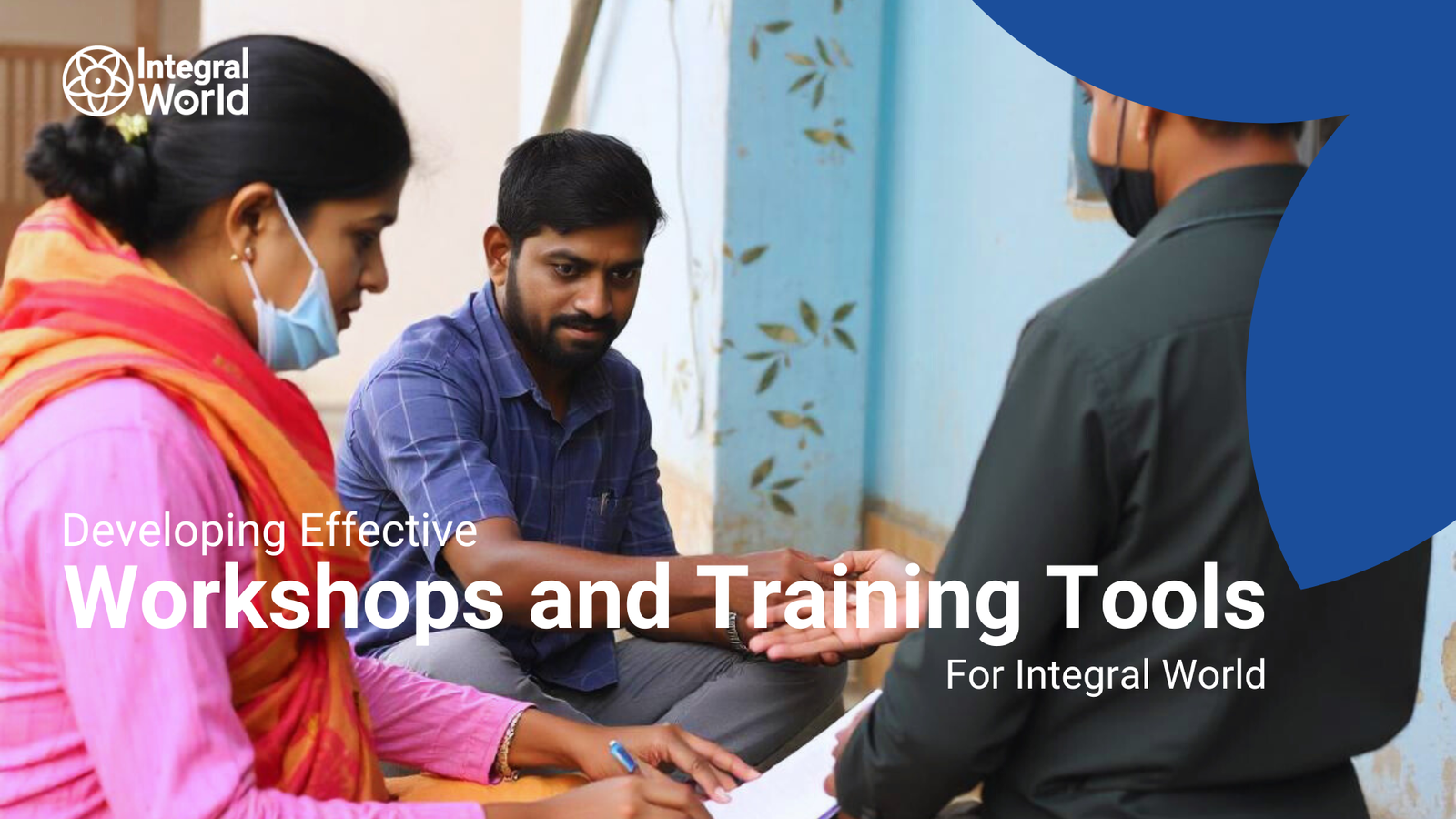Sustainable Development Oriented Non-Profit Organizations, workshop and training tools or programs are very instrumental in enhancing capacity building, knowledge transfer, and community empowerment. For Integral World, these initiatives are significant for change and impact in the long run.
This comprehensive article provides insights from experts as well as strategies and examples that help organizations develop effective workshop and training tools to make their teaching more powerful to thought leadership.
Importance of Effective Workshop & Training Tools
Workshops and training programs play a crucial role in:
- Capacity Building: Providing stakeholders with skills and information.
- Knowledge Transfer: Sharing best practices as well as innovative solutions.
- Community Empowerment: Encouraging self-sufficiency and sustainable development.
Insights from Experts
Dr. Sarah Johnson who is an education specialist talks about how transformative workshops can be when they are properly organized by stating “well-designed workshops can catalyze learning and inspire participants to apply new skills in their communities.”
Michael Brown who is a Training Consultant also believes that interactive tools play a major part in trainings activities. He says “engaging training tools enhance participant involvement and retention of knowledge, leading to more effective learning outcomes.”
Jane Lee who is a community development expert emphasizes on relevance “Workshops should address specific community needs and be adapted to local contexts for meaningful impact.”

Developing Effective Workshop & Training Tools: A Step-by-Step Guide
Effective workshop and training tools engage learners, deliver practical knowledge, promote long-term learning. Here’s how you can create impactful tools:
Step 1: Identify Learning Objectives and Audience Needs
Each time you plan or design workshops/programs; it is crucial to identify these objectives clearly so that they align with the organizational goals plus meet participant requirements.
Actionable Tips: Do a needs assessment so as to establish skill gaps /training priorities
Set clear learner outcomes that will guide the participants towards achieving them during the program
Step 2: Design Engaging Content And Curriculum
Make a structured curriculum, focusing on the main themes and incorporating interactive parts to maintain the participation of the attendees throughout.
Actionable Tips: Teach through various means like use of examples, role play and group discussion
Divide content into small piece with clear learning milestones.
Step 3: Integrate Technology and Multimedia
Utilize technology and multimedia tools in order to enrich learning experience as well as cater for different learning styles.
Actionable Tips: Use videos, simulations, and online modules to supplement in-person workshops.
Provide resources and reading materials accessible through digital platforms too.
Step 4: Facilitate Hands-on Learning and Practical Application
Promote active learning via practical activities which allows participants using those newly acquired skills in real life situations.
Actionable Tips: Organize field visits, demonstrations or practical workshops that can reinforce theoretical concepts.
Encourage peer-to-peer learning among participants as well as collaboration during training sessions
Step 5: Evaluate Learning Outcomes And Continuous Improvement
Assessing the effectiveness of workshop and training tools is done by getting participant feedbacks; evaluating performance assessments; doing impact evaluations among others.
Actionable Tips: Pre-and post-training assessments should be used for measuring knowledge gain and skill development respectively.
Qualitative feedback should also be sought to get better understanding about participant satisfaction level plus areas requiring improvement if any.
Success Stories: Impactful Implementation of Workshop & Training Tools

Case Study 1: Health Education Workshops
Integral World conducted health education workshops in rural communities, focusing on preventive healthcare practices. These workshops employed participatory meetings as well as hands-on demonstrations thus enabling members of these societies to learn about matters such nutrition, hygiene cleanliness plus ways of preventing diseases from their own experience.
Success Factors:
Community Engagement: Engaging local community leaders who are conversant with health issues within their respective areas to take charge of facilitation roles is one way that Integral World used to make sure that it is people centered.
Behavioral Change: Helping participants to personally make decision and take responsibility for their own health in a bid to attain healthier living standards.
Dynamic sustainability: Strengthening the ability of local communities to continue health education initiatives on their own.
Anatomy 2: Entrepreneurship Training Program
A training program in entrepreneurship designed by Integral World had helped would-be business people with the knowledge and skills they required. The program comprised lessons on business planning, financial management, and marketing strategies, culminating in a business pitch competition.
Critical Success Factors:
- Proficiency Improvement: Augmenting participants’ confidence levels and entrepreneurial abilities.
- Employment Generation: Facilitating establishment of start-ups as well as other income generating activities.
- Economic Empowerment: Contributing towards poverty eradication and economic growth within the society.
Experts Speak on Workshop & Training Tools
Participative learning is emphasized by Dr. Thomas Anderson, an expert in organizational development. According to Anderson; “Active participation fosters deeper learning and retention of knowledge through interactive workshops.”
Rachel Smith, a Manager for Learning & Development points out that continuous improvement is important too. Smith affirms that; “Regular feedback loops and evaluations ensure that training programs evolve to meet changing needs and expectations.”
Practical Advice for Organizations
Set clear objectives – Align workshop content with specific learning outcomes and participant needs. Develop captivating contents – Use multimedia or interactive materials which will be engaging to the participants. Facilitate practical application – Theory should be reinforced through hands-on experiences. Monitor impact – Measure what trainees have learnt from the exercise and seek suggestions for further improvements so as to enhance effectiveness of workshops.
Promote Innovative Thinking: Embrace new technologies as well as methods of instruction so as to improve scalability during training sessions.
Conclusion
Integral World continues to lead by example in developing effective workshop and training tools that empower communities and drive sustainable development. By embracing innovative approaches, leveraging technology, and prioritizing participant engagement organizations can maximize the impact of their educational initiatives.
By adopting such strategies, based on lessons learnt from successful case studies, organizations can effectively develop workshop and training tools that bring about real change as well as empower people and communities all over the world. Integral World remains committed to advancing these efforts, promoting education, and fostering sustainable development for a better tomorrow. Join us in our mission to build a more knowledgeable, empowered, and resilient world. To find out more about how you can develop effective workshop and training tools towards achieving sustainable development goals connect with Integral World on LinkedIn or visit our website at www.integralworld.org. Let us empower communities together, build capacities and knowledge.


Comments are closed for this article!